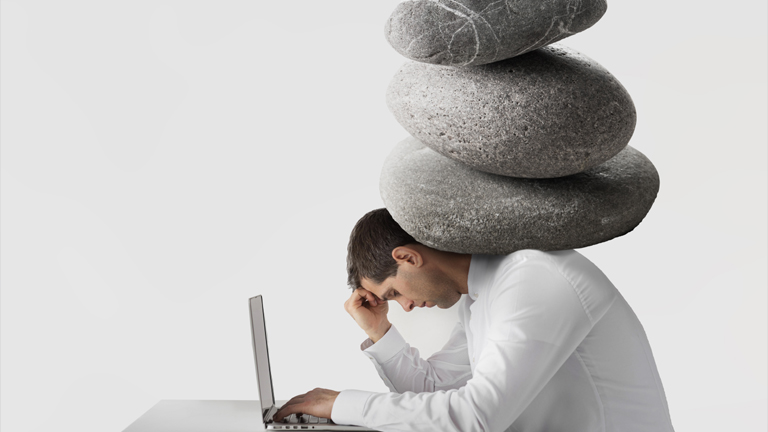In today’s fast-paced world, mental health & stress have become critical concerns affecting millions globally. With rising searches for anxiety/depression management, especially during high-stress periods, it’s essential to adopt effective coping strategies. This guide explores proven stress relief techniques, the connection between mental health and stress, and actionable steps to improve emotional well-being.
Must Check: Anxiety Treatment
Understanding Mental Health & Stress
Mental health encompasses emotional, psychological, and social well-being. It affects how we think, feel, and act, influencing our ability to handle stress, relate to others, and make decisions. Poor mental health can lead to conditions like anxiety, depression, and chronic stress.
The Impact of Stress on Mental Health
Stress is the body’s natural response to challenges, but chronic stress can severely impact mental health. Prolonged stress contributes to:
-
Increased anxiety and depression
-
Sleep disorders
-
Weakened immune system
-
Heart disease and high blood pressure
Recognizing the signs of stress early can prevent long-term damage to mental health.
Common Causes of Stress & Their Effects on Mental Health
Work-Related Stress
Long hours, tight deadlines, and job insecurity are major contributors to workplace stress, leading to burnout and decreased productivity.
Financial Stress
Money worries are a leading cause of anxiety and depression, affecting sleep and overall well-being.
Relationship & Social Stress
Conflicts with family, friends, or partners can trigger emotional distress, worsening mental health conditions.
Health-Related Stress
Chronic illnesses or sudden health issues can create overwhelming stress, impacting mental resilience.
Effective Stress Relief Techniques for Better Mental Health
1. Mindfulness & Meditation
Mindfulness practices, such as meditation and deep breathing, help reduce stress by promoting relaxation. Studies show that regular meditation lowers cortisol levels, the primary stress hormone.
How to Practice Mindfulness:
-
Spend 10 minutes daily focusing on your breath.
-
Use guided meditation apps like Headspace or Calm.
-
Practice gratitude journaling to shift focus from stress to positivity.
2. Physical Exercise & Movement
Exercise releases endorphins, natural mood boosters that combat stress and anxiety.
Best Exercises for Stress Relief:
-
Yoga (combines movement with mindfulness)
-
Walking or jogging in nature
-
Strength training to release tension
3. Healthy Diet & Hydration
Nutrition plays a vital role in mental health. A balanced diet stabilizes mood and energy levels.
Stress-Reducing Foods:
-
Omega-3 fatty acids (found in salmon, walnuts)
-
Dark chocolate (in moderation)
-
Green leafy vegetables (rich in magnesium)
4. Quality Sleep Hygiene
Poor sleep exacerbates stress and mental health issues. Establishing a sleep routine improves emotional resilience.
Tips for Better Sleep:
-
Avoid screens 1 hour before bed.
-
Maintain a consistent sleep schedule.
-
Create a calming bedtime ritual (e.g., reading, warm tea).
5. Social Connection & Support
Isolation worsens stress, while strong social ties enhance mental well-being.
Ways to Stay Connected:
-
Reach out to friends/family regularly.
-
Join support groups (online or in-person).
-
Volunteer to foster a sense of purpose.
6. Cognitive Behavioral Therapy (CBT) & Professional Help
For chronic stress or anxiety/depression management, therapy provides structured coping mechanisms.
When to Seek Help:
-
Persistent sadness or hopelessness
-
Inability to perform daily tasks
-
Thoughts of self-harm
Effective Stress Relief Techniques for Mental Health
| Technique | How It Helps | How to Implement |
|---|---|---|
| Mindfulness & Meditation | Reduces cortisol, improves focus, and lowers anxiety. | – Practice 10 min daily. – Use apps like Headspace or Calm. – Try deep breathing exercises. |
| Physical Exercise | Releases endorphins, reduces stress hormones, and boosts mood. | – 30 min of yoga/walking daily. – Strength training 2-3x/week. – Dance or swim for fun. |
| Healthy Diet | Stabilizes blood sugar and mood; deficiencies worsen stress. | – Eat omega-3s (salmon, walnuts). – Limit caffeine/sugar. – Stay hydrated. |
| Quality Sleep | Restores brain function and emotional resilience. | – Stick to a sleep schedule. – Avoid screens before bed. – Create a dark, cool sleep environment. |
| Social Connection | Reduces isolation; emotional support lowers stress. | – Call a friend weekly. – Join a hobby group. – Volunteer in your community. |
| Therapy (CBT) | Provides tools to reframe negative thoughts and manage stress long-term. | – Seek a licensed therapist. – Try online therapy (BetterHelp, Talkspace). – Practice journaling. |
| Time Management | Prevents overwhelm and burnout. | – Prioritize tasks (Eisenhower Matrix). – Set boundaries (learn to say no). – Delegate when possible. |
| Digital Detox | Reduces anxiety from social media and screen fatigue. | – Set screen-time limits. – Take tech-free walks. – Designate “no-phone” hours. |
Long-Term Strategies for Managing Mental Health
Time Management & Prioritization
Over commitment leads to burnout. Learning to say no and setting boundaries reduces stress.
Digital Detox & Reducing Screen Time
Excessive social media use increases anxiety. Schedule regular breaks from screens.
Hobbies & Creative Outlets
Engaging in hobbies (painting, music, gardening) provides a mental escape from stress.
Practicing Self-Compassion
Being kind to yourself during stressful times prevents self-criticism, which worsens mental health.
Conclusion: Prioritizing Mental Health in a Stressful World
Managing mental health & stress requires a proactive approach. By integrating mindfulness, exercise, proper nutrition, and professional support when needed, individuals can build resilience against stress. Recognizing the signs early and adopting these stress relief techniques ensures long-term emotional well-being.
If you or someone you know is struggling with anxiety/depression management, don’t hesitate to seek help. Mental health is just as important as physical health—prioritize it today.
FAQs on Mental Stress Relief
1. What are the early signs of stress affecting mental health?
-
Irritability, fatigue, headaches, and difficulty concentrating.
2. How does exercise help with stress?
-
It releases endorphins, reduces cortisol, and improves sleep.
3. Can diet really impact stress levels?
-
Yes, nutrient-rich foods stabilize blood sugar and mood.
4. When should I see a therapist for stress?
-
If stress interferes with daily life for weeks, professional help is recommended.
By following these strategies, you can take control of your mental health & stress, leading to a happier, healthier life.


